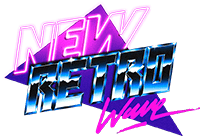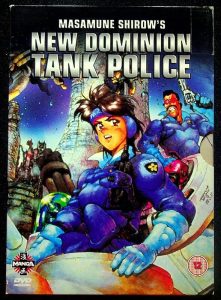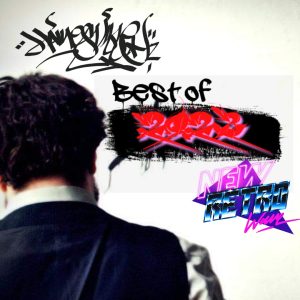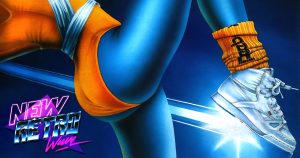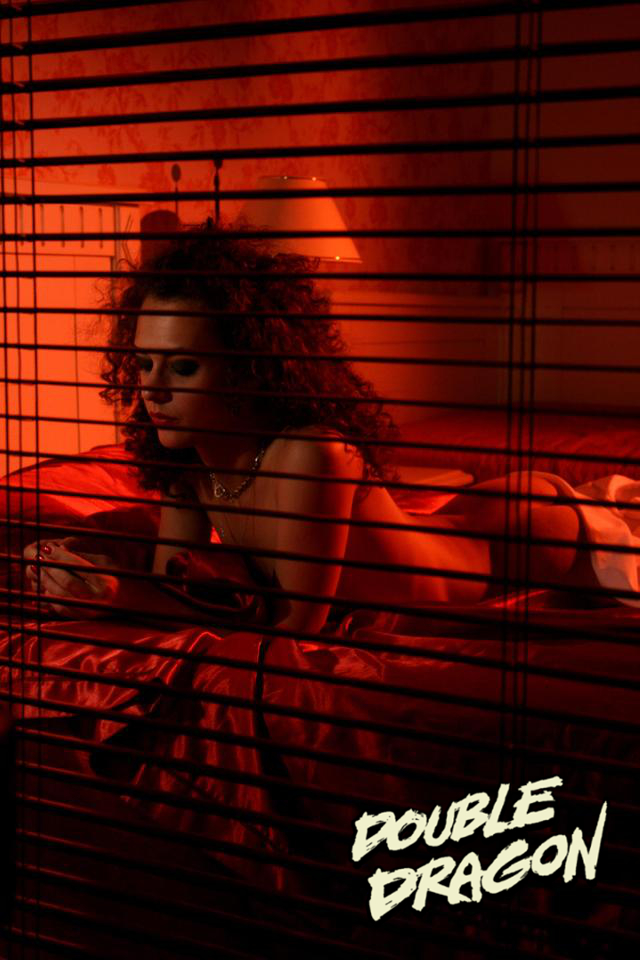
From the ground-breaking inception of sampling to the world-renowned French Touch movement, it surely is no secret by now that the French are among the chief innovators and forbearers in the world of electronic music. As the home to Synthwave’s earliest and most successful artists, it sure looks like French have yet to lose their touch in their craft. Amongst the scene’s most notable yet unfairly overlooked figures in the movement’s early years, credit is owed to Nordine and Pascal, the two halves of the ass-kicking synth duo known as Double Dragon, who’ve been around and about since the start of the millennia, delivering punchy remixes, killer movie scores and deadlier tracks since day one. To celebrate the reissue of the duo’s long-awaited self-titled debut record by MusicFearSatan, we recently caught up with the group to do little recap the bands’ history.
How did you guys first meet and how did Double Dragon start out?
It must’ve been around the beginning of the year 2000. We were two DJs who were passionate about electronic music and we were each doing our own thing. We met through mutual friends and we immediately hit it off and started mixing together along with other friends. Those were great days! We would all show each other our favourite tracks and we would mix them together.
I also fondly remember our trips to Montpellier to buy records at the famous ‘Pinguins Rec’ record store. It was a different time… the Internet wasn’t widespread yet, going there was like driving to Disneyland for us! We quickly started setting up some shows in nearby bars and clubs in our region, mixing stuff here and there.
Being the music aficionados that we were, we eventually considered going doing our own thing, out of curiosity, to prove to ourselves that we were able to do it and also because the music we were after wasn’t yet out there. As fans of Giorgio Moroder, Vangelis and the like, we were pretty bummed to find so few releases using the Synths from that period. Making our own music was a way of bringing back all of these 80s’ sounds that we loved so much. This was back in the year 2000, way before the big boom that made way for “Synthwave” scene when Drive came out.
Double Dragon thus came before the whole “Synthwave” aesthetic came along. Do you identify with the term nonetheless? And have you noticed any changes in your audience since you started?
Yes, totally! We use a lot of Synths with 80’s Sounds in our music, so apparently we’re Synthwave. Our audience also changed a bit since then. One proof is that a lot of people that’ve known us since our start were still telling us a few years back “Hey guys! There’s a guy called Kavinsky who’s doing the same stuff as you!”, whereas now people more often say “You guys sound quite a bit like Kavinsky”. We still take it as a compliment though, we’re fans of his work.
The French Scene seems to occupy a central role in the whole “Retro-futuristic electronic music” movement. How do you account for France’s affinity for these references, given that most of the 80s’ pop-culture referenced comes from the US?
First off, you need to remember that a lot of the “American” musical references aren’t actually American. The iconic Blade Runner Score was done by Vangelis, who is Greek. The Soundtracks to The Neverending Story, Scarface, Flashdance and many other movies were done by Giorgio Moroder, who’s from Italy. Let’s also not forget Tangerine Dream, who made a lot of Soundtracks to American films with their bewitching synths (Sorcerer, Thief – which inspired Drive -, Street Hawk, Legend, Fright Night…). Secondly, it’s safe to say that France has always played a central role in electronic music. François de Roubaix, Jean Michel Jarre, Laurent Garnier, Daft punk, Manu le malin, Vitalic, M83, The Hacker, Justice, Kavinsky and Gesaffelstein are all there to prove it!
But to answer the question more directly, we think that a lot of current musicians were simply raised in the eighties, a time when the US already dominated worldwide entertainment (except maybe in China and Russia! [Laughs]). Like us, they were also cradled by 80s movies and 80s radio hits. We just try to recapture this childhood magic by recreating it. The same goes with TV shows and movie directors.

During an earlier interview of mine, David Grellier from College stated that to him, the 80s represent a time where our prospects of the future were idealized and much more optimistic than today. Would it be fair to apply this viewpoint to your approach to the retro-aesthetic?
The future was indeed brighter in the eighties, except in the Terminator series! [Laugh] When we’re making music we’re not consciously aiming for a retro aesthetic. We just instinctively chose the synths and rhythms that we like. There’s no definite intent to sound ‘Retro’ or ‘Retro-futuristic’. Speaking of which, our album cover doesn’t really go for this “Synthwave” aesthetic. That was actually a conscious decision on our part, we wanted to stay away from the Synthwave visual aesthetic. Perhaps we’ve overdosed a little on it…
What is your perspective on 80s’ kitsch?
It’s okay in small doses. A lil’ Godfrey Ho ninja flick or an Italian “Post nuke” flick from time to time is cool but it’s not our favourite thing. By the way, we do not label Rocky IV nor Commando as “kitsch”! [Laugh]
Music-wise, however, we’re a little more indulgent. We’ll play ‘Push it to the Limit’ and ‘When the Rain begins to fall’ on repeat anytime!
How would you describe your collaborative process with Double Dragon and how do you manage to make it an expression of both of your creative voices?
It’s hard to qualify our collaborative process, but what we can say is that we work in several ways. We sometimes start working on songs on our own and finish them together, other times we do things the other way round and work on a track together and let one of us finish it alone. We sometimes write a track together from start to finish but it’s a little rarer. If we’re writing and we feel like the track needs some electric guitar in it, we send the track (finished or unfinished) directly to our guitarist so that he can lay some riffs on it. As to our songs with vocals, we generally decide on that once the track is done. If we’re missing something or if the song is simply ‘spacious’ enough to feature vocals, we’ll send it to one of vocalists to see if the song vibes with them. We’re really lucky to have been on the same page since the start regarding the creative direction of Double Dragon
What’s next for you guys? Any new releases or Scores on the way?
We’ve got three tracks that are going to be featured on the Soundtrack to Junk Love, written by Pierre de Suzzoni. We’re also about to start working on the Soundtrack to the new film by François Gaillard (with whom we’ve worked with several times before), which will be appearing in 2018. We’re really looking forward to it! We might also shoot for a new record by the end of 2018 on Musicfearsatan… we’ll have to wait & see.
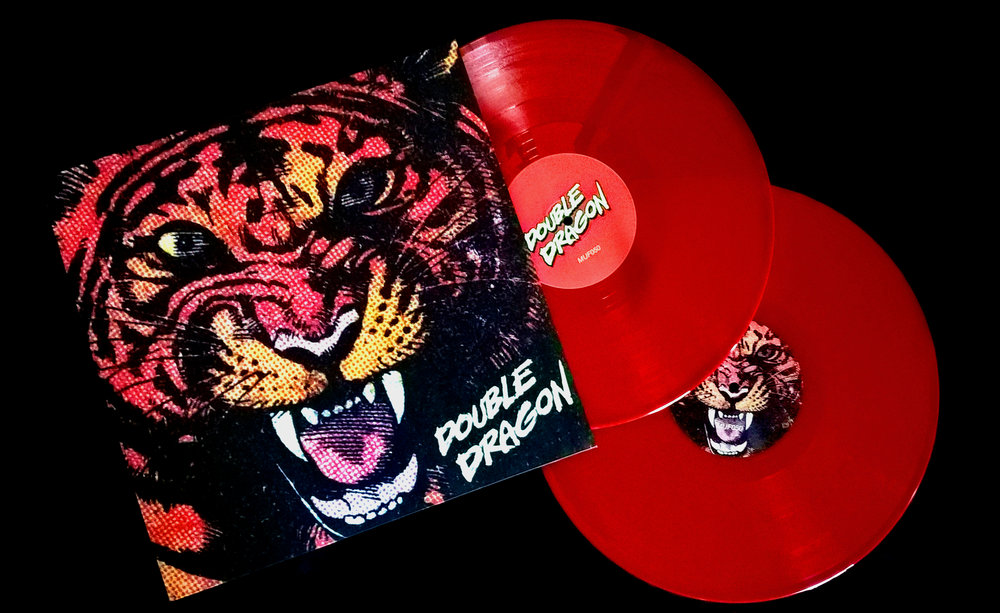
Now for some serious business: what are your favourite martial arts movies? Are you more Jackie Chan or Brucie Lee?
Nordine: Way of the Dragon and Crouching Tiger, Hidden Dragon. Bruce Lee all the way!
Pascal: The Blade by Tsui Hark, Game of Death (just for the fight scenes, of course) and Tom-Yum-Goong with the incredible Tony Jaa.
Even though Jackie Chan’s filmography is incredible, I’m going to have to go with Bruce Lee as well.
Closing off: name one of your favourite albums, movies and books.
Nordine: Terminator 2, M83 – Dead Cities, Red Seas and Lost Ghost, and Gainsbourg by Gilles Verlant.
Pascal: Apocalypto, Chvrches – The Bones of What you Believe and Easy Riders, Raging Bulls by Peter Biskind.
A huge thank you to the band and to Rémy at MusicFearSatan for setting up the interview.
Be sure to catch up with Double Dragon on their social media pages.
https://www.facebook.com/DoubleDragon.electro/
Bandcamp
